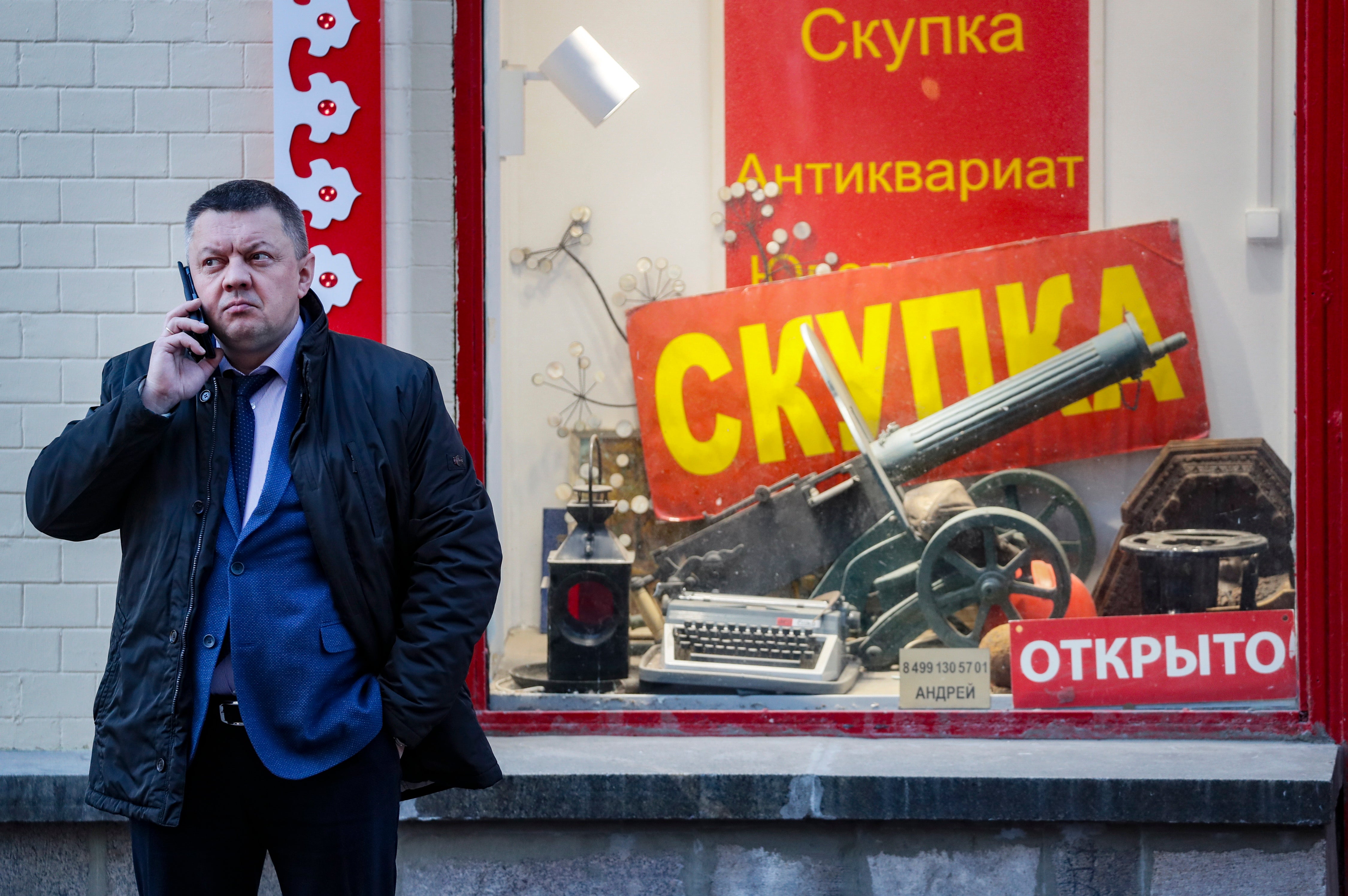What will Russia’s economic isolation from the west mean in practice?
There will be a tough adjustment in the months ahead, but the world can get along without Russia, writes Hamish McRae


The Russian economy is going to be largely cut off from the west until there is a change of regime in Moscow. We cannot know what will happen in Ukraine itself, but it is hard to see any outcome that will be acceptable to the west.
This means that the sanctions currently imposed could last for years. Western corporations will find that they are under increasing pressure to avoid any investments that involve Russia. Trade will be severely limited, as it was during the Cold War, between the end of the Second World War and the fall of the Berlin Wall, with importers of Russian produce – including oil and gas – seeking other sources of supply.
Exports of western technology will be blocked, and it is quite possible that consumer and investor pressure will stop the sale of other items, notably luxury goods.
What has begun in the past few days, with BP getting out of its investment in Rosneft and Shell cutting its ties with Gazprom, will become an avalanche. Norway’s sovereign wealth fund, the largest in the world, says it will announce its plans to exit from Russia in two weeks’ time. Global law firms are cutting relationships with some of their Russian clients.
Volvo and Jaguar Land Rover are halting deliveries. We will have to wait and see what Renault does, for Russia is its second biggest market, but its production there is under threat because it has to import components, which will be difficult given the travel and transport bans. Avtovaz, Russia’s largest car maker, which is controlled by Renault, is reportedly seeking alternative supplies of chips and other components. But I could see Renault coming under consumer pressure to disengage. Do you really want to buy a car from a company that gives de facto support to President Putin?
How far will the avalanche extend? There are two views. One, the dominant one until a few days ago, was that the practicalities of European trade with Russia would mean that, after a pause, trade would creep back. As many have noted, Europe is massively dependent on Russia for its gas, and is a big buyer of its oil.
Oil and gas payments were apparently excluded from the ban on international payments when some Russian banks were excluded from the Swift money transfer mechanism. In any case, about 20 per cent of Russia’s oil goes to China, which will take more. As for imports, the history of sanctions elsewhere suggests that if a country is prepared to pay over the odds for a product, it can usually manage to get hold of it.
That view has rather receded as a result of the growing evidence of a human catastrophe in Ukraine, something I fear seems likely to become even more grave in the days ahead. As a result, the second view – that Russia will become a pariah state akin to North Korea – is becoming dominant. Governments can and will continue to put pressure on banks and commercial companies not to do business with Russia, but the most powerful driver will be investors and customers.
One parallel is ESG investing, where potential investors examine environmental, social and corporate governance factors when placing their funds. Companies have been forced to comply with higher ESG standards, or at least make an effort to improve their performance. For example, Norway’s sovereign wealth fund started to pull investment out of fossil fuels three years ago. Companies can defy investor choices, but they will find it hard to raise new capital should they need it.
To keep up to speed with all the latest opinions and comment, sign up to our free weekly Voices Dispatches newsletter by clicking here
The other parallel is the consumer boycott. There is a long history of these, including most recently the way Twitter users put pressure on the platform to exclude its most prominent user, Donald Trump, after the storming of the Capitol in January last year. Companies that fail to disengage with Russia will be targets.
These pressures will not immediately force a change of leadership in the Kremlin. That is not the way the world works. But gradually, relentlessly, the pressure will mount.
Russia is and will remain important as a primary producer of petroleum and some minerals and these will find their way onto international markets. But if it cannot import technology from the west, the only other options are China and India. Both will be under pressure not to make life easy for Russia, and neither can supply all that Russia needs to be competitive in global markets.
And it is worth repeating the point that the Russian economy accounts for less than 2 per cent of the global economy. There will be a tough adjustment in the months ahead, as we are already seeing in oil and gas prices, but the world can get along without Russia. And it will increasingly do so.






Join our commenting forum
Join thought-provoking conversations, follow other Independent readers and see their replies
Comments